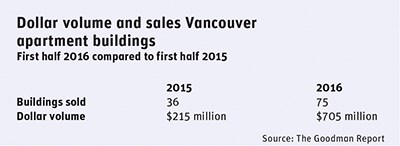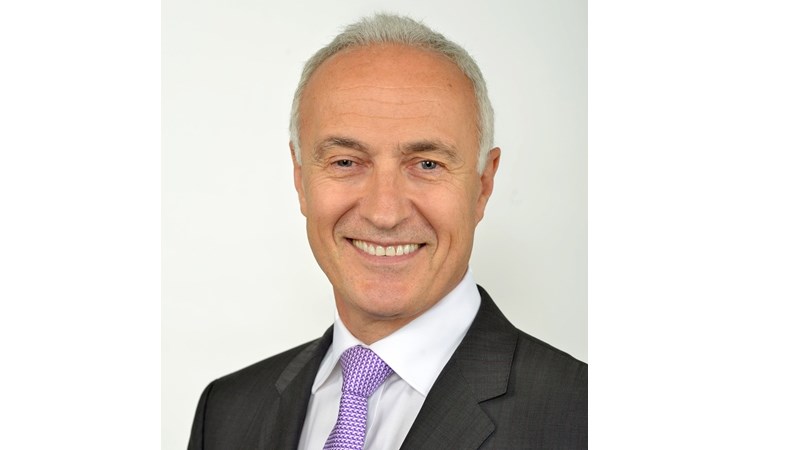Sales of Metro Vancouver multi-family rental buildings (MURBs), while designated as a commercial real estate transaction by the Real Estate Board of Greater Vancouver, are exposed to B.C.’s new 15 per cent foreign buyer tax on residential purchases, the Finance Ministry has confirmed.
“It is our view the MURBs should be exempt from this 15 per cent tax,” said David Hutniak, CEO ofLandlord BC, which represents 3,300 private landlords.
Hutniak said the tax could stall the construction of new rental housing in Metro Vancouver at a time when “the need is significant and we are finally starting to see some traction in terms of new construction.”
The new regulations on foreign buyers in Metro Vancouver came into effect, retroactively, on August 2, aimed squarely at the higher-end housing market.
Finance Minster Mike de Jong reported that non-Canadians spent more than $250 million a week on B.C. residential real estate from June 20 to July 14, 86 per cent of it in the Lower Mainland.
There was no information if any of these sales involved the booming rental apartment building market.
The sales volume of rental apartment buildings in Metro Vancouver soared 142 per cent to $1.1 billion in the first six months of this year, compared to the same period in 2015 according to an industry survey compiled by David and Mark Goodman of HQ Real Estate Services. In Vancouver, sales of apartment buildings skyrocketed 288 per cent to $705 million in the same period.
The Goodmans and other agents specializing in apartment buildings say the majority of buyers are locals or recent Canadians, so the foreign buyer tax will not have much affect on the white-hot market.
“Most of our buyers are local, or are permanent residents,” said Jackson Tang of NAI Commercial, who recently helped sell a 69-year Kitsilano apartment block for $4.5 million, or $750,000 for each of the six suites.
“Approximately 28 per cent of the apartment building sales in the first half of this year were to developers who have purchased on the land value, rather than income” Mark Goodman said. He explained that this has contributed to the apparently dramatic spike in the average price per unit.
Under the new foreign tax regulations, land zoned for residential development is subject to the tax, but commercial land bought for speculation as high-density housing is not.
Land and multi-family deals now dominate commercial sales in Metro Vancouver, according to the Real Estate Board of Greater Vancouver, based ontransactions through the Land Title and Survey Authority of BC.
Multi-family rental buildings are a revenue-generating property, explained real estate board spokesman Craig Munn, and have always beencategorized as“part of the commercial umbrella.”
Land sales hit $1.6 billion in the first three months of this year, up 118 per cent from a year earlier. Some of these transactions, particularly in Vancouver and Burnaby, are related to speculative plays based on potential high-density residential development.
“If the land was not residential, it would not attract the additional [foreign buyer] tax at that time. When the multifamily units are sold to buyers, the individual sales would attract the additional tax if bought by a foreign entity,” explained Stephen Sharp, press secretary to Premier Christy Clark




